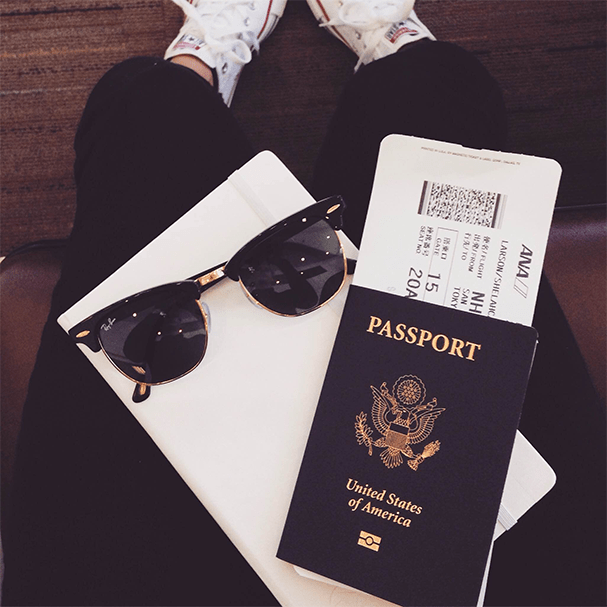10 Tips to Prepare you for the Difficulties of Life Abroad
This post is by Zoé Paddon, a CIEE TEFL and Teach in Chile alumni
If you’re reading this, you’ve decided to teach abroad. Congratulations! The hardest part is over. Deciding to live and teach abroad is a bold choice. We support you all the way.
You’re probably already making mental lists of all the things you need to do to prepare: apply for a visa, start looking for a place to stay, pack, get a phrase book for the local language, etc. Of course, there are the initial hurdles to overcome and there will be challenges along the way, but your program will help you with that and you’ll be amazed how quickly you adjust to life in your new country.
No matter how well you adapt, though, some things that may be easy back home may become a lot more difficult in your life abroad. Don’t despair! It happens to the best of us. To make your life a little easier, here are some tips to help you prepare for some difficulties down the line.
1. Getting your pet "fix"
Problem: Leaving your pets is the hardest part of leaving home. It’s not like you can Skype them weekly!
Solution: Spend some quality time with your furry friends before you leave: go on longer walks, snuggle up in bed, or give them a few extra treats to let them know they’re special. If you can’t bear to be away from them, an app like “Dog Monitor” lets you check in on them regularly. If it’s just animal-time you crave, take that into account when you’re apartment hunting and look for apartments that already have a pet in them. You can also volunteer at a local animal shelter or just find parks or squares where the local animals like to hang out.
However, remember that some countries don’t necessarily view animals the same way we do. Nothing says “gringo-alert” like petting street dogs and cats. Be sure to stay safe around animals abroad!
2. Getting a haircut
Problem: Most people are creatures of habit and really only trust one person to do their hair, so finding a new place that you trust is difficult. Describing what you want and getting it is hard enough in your own language, but doing so in a foreign one is much more daunting. Oh, and don’t be surprised if the local style is different than what you are used to. What one country thinks is trendy, another may hate.
Solution: Get a haircut before you leave. After all, you’ll be taking lots of pictures abroad; you want to look good! Snap a few shots of your new cut after it’s done, that way, you can show your new stylist exactly what you want. Also, do some research ahead of time. If you like a local friend’s hairstyle, ask your them where they get their hair cut. Make sure you know the proper words for “layers” and “length” and “oh god please stop!” Worst-case-scenario, remember that bad haircuts are great opportunities to learn new ways to style your hair. If you don’t like a cut, stock up on headbands and pins, you're gonna need them!
3. Shopping
Problem: Shopping can get stressful abroad, especially when you might not recognize all, if any, of the brands.
Solution: If you rely exclusively on one product, stock up before you leave. Big malls will most likely have the brands you know, but if you’re not in a major city, it can be tricky to find products you’re familiar with. If you can’t find something you really need, look into using sites like Airfrov or Comgateway to avoid high shipping fees.
Ladies: Be sure to stock up on any sanitary products you need – they can be very expensive abroad!
4. Using your phone
Problem: Using your phone abroad is difficult. You have to navigate time differences to call home, it can be frustrating to figure out which plan is best for you and your carriers back home might make the whole process harder.
Solution: Some carriers offer decent plans for travel abroad but, in the long-term, you’ll save a lot of money by getting a local carrier. The best thing you can do before you leave is to make sure you unlock your phone. It will save you a lot of time trying to get in touch with a representative.
5. Keeping up with the news
Problem: It’s not easy to stay in the know of all the current events, and it’s often tempting just to disconnect when you’re abroad.
Solution: Be sure to stay up to date with events in the country you’re working in, especially in your city since it can affect your day-to-day there. Set up google alerts or follow local news organizations and subscribe to your favorite news sites for daily updates on the rest of the world. If you need help sorting through the mass of information, download apps like Flipboard, or Timeline, that filter it for you, or subscribe to newsletters like The Skimm, Need2Know, or The Daily Beast Cheat Sheet.
6. Taking out Cash
Problem: You will probably open up a local bank account when you work abroad but there will come a time when you need to take cash out on your foreign card. When that time comes, don’t let the sneaky fees get you.
Solution: First things first, bring dollars with you. Exchanging them locally will get you more than taking out cash at the ATM. Some countries have a huge market for USD and you can get very competitive exchange rates. When it comes to taking out cash at the ATM, be sure ahead of time that you know where you’ll get the least fees, chances are your bank at home will have a sister bank abroad that won't charge you as much, or anything at all. It's also helpful to stay up to date with the currency exchange rate. When you do take out money, do so in bulk and store the extra in a safe place. Taking out small amounts will drain your account much faster.
7. Riding the bus
Problem: Wherever you end up, you will need to figure out the local methods of public transportation. Subways and trams are usually relatively more straightforward to use, but not all cities have them. Bus networks can be a lot more challenging, and each city has its own organization, or lack thereof, for their buses, so you will have to figure it out every time, unfortunately.
Solution: Download Citymapper, or any local app designed to help you figure out bus routes. As soon as you arrive, inquire about the best type of card or ticket you can get to lower your fares. During your first few weeks there, watch what people are doing around you and pick up on their cues. Learn whether you need to press a button or call out to the driver, and how to pay the proper fare by observing them.
8. Going to the doctor
Problem: Okay, this is never fun, but a lot can happen in a year and preparation is key.
Solution: Keep hard and digital copies of everything: vaccinations, prescriptions, insurance information etc. Stock up on over-the-counter medication before you leave. Make sure you know where to go in case of emergency and find doctors that speak your language if you don’t feel comfortable speaking theirs. If you’re in a different city and aren’t prepared, an app like mPassport can be very useful in case of emergency.
9. Making friends
Problem: Making friends in a new city is always hard, but it feels especially tough when it’s in a different country and in a different language. Some cultures are much more forward than others and, in most cases, you will have to put in a lot more effort than them to build a friendship. Persevere, it’s worth it.
Solution: Join Facebook groups and pages for expats living in your city; they will provide a wealth of knowledge before you even arrive. Pages like this will also have opportunities for language exchanges, either one-on-one or in groups. If you feel comfortable with the local language, look for socializing opportunities on websites like Meetup, Couchsurfing, or Workaway to meet new people over common interests.
10. Finding time for yourself
Problem: Once you do make friends and get into the full swing of your life abroad, days may go by without five minutes for yourself. It’s great you’re traveling, going out, and learning more about the culture you are a part of, but don’t forget to give yourself some time. Take a nap, journal, rewatch your favorite TV show. Taking a break will make the rest so much better.
Solution: Set goals for yourself before you leave: plan to send out a newsletter to your loved ones, or blog regularly, or even set a list of books you want to read. If you need the extra motivation, download an app that can help you track your progress.
Finally, always remember that it’s okay to turn down some invitations. You may feel pressure to do everything all the time, but don’t let yourself burn out. Opportunities will always come around, know which ones are best for you.



